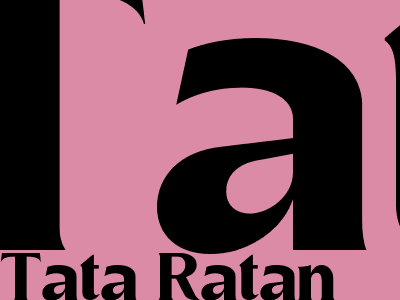
Tata Ratan
Google and Blogger.com SEO: A Comprehensive Guide
Introduction
In today's digital landscape, search engine optimization (SEO) is crucial for businesses and individuals looking to increase their online visibility and drive traffic to their websites. Google and Blogger.com are two of the most popular platforms for creating and hosting content online. This guide aims to provide a comprehensive overview of SEO best practices specific to Google and Blogger.com to help you optimize your content and improve its ranking in search results.
Content Optimization
High-quality, relevant content is the foundation of effective SEO. When creating content for your Blogger.com blog or Google website, focus on providing valuable information that meets the needs of your target audience. * **Conduct Keyword Research:** Identify relevant keywords that your target audience is searching for and incorporate them naturally into your content. Use tools like Google Keyword Planner or SEMrush to research keywords. * **Structure Your Content:** Use clear headings (H1, H2, H3, etc.) and subheadings to organize your content and make it easy for readers to scan and understand. * **Optimize for Featured Snippets:** Answer specific questions or provide definitions in a concise and informative way to increase your chances of appearing in featured snippets, which are highlighted results that appear above organic search results. * **Use Rich Media:** Incorporate images, videos, and infographics to enhance the user experience and make your content more engaging. Optimize images by using descriptive file names and alt tags. * **Interlink Your Content:** Link to relevant pages on your website to help Google understand the structure and hierarchy of your content. Internal linking also helps distribute link equity throughout your site.
Technical Optimization
Technical optimization ensures that your website or blog meets Google's technical requirements and is easy for search engines to crawl and index. * **Ensure a Mobile-Friendly Design:** With the majority of searches now coming from mobile devices, it's crucial to ensure that your website is responsive and adapts to different screen sizes. * **Optimize Page Speed:** A fast-loading website is essential for a good user experience and SEO. Use tools like Google PageSpeed Insights to analyze and improve your site's performance. * **Use a Clean URL Structure:** Search engines prefer simple, descriptive URLs. Avoid using numbers, special characters, or underscores in your URLs. * **Create an XML Sitemap:** An XML sitemap is a file that lists all the pages on your website, making it easier for search engines to discover and crawl your content. * **Use Header Tags:** Header tags (H1, H2, etc.) help search engines understand the hierarchy and structure of your content. Use them to convey the most important information on each page.
Blogger.com-Specific Optimization
Blogger.com offers specific settings and features that can enhance your SEO efforts. * **Use Custom Domains:** Instead of using the default Blogger.com subdomain, connect a custom domain to your blog to improve branding and credibility. * **Enable HTTPS:** Secure your blog by using HTTPS, which encrypts data and improves your site's security and SEO ranking. * **Optimize Your Blogger Profile:** Fill out your Blogger profile completely, including your name, bio, and social media links. Search engines may use this information to associate your blog with your online presence. * **Use Labels and Categories:** Organize your blog posts into relevant categories and labels. This helps search engines understand the content and structure of your blog.
Google Search Console and Analytics
Google Search Console and Google Analytics are valuable tools that provide insights into your website's performance and help you track your SEO efforts. * **Google Search Console:** Monitor your website's search performance, identify errors, and receive notifications of any issues that may affect your SEO. * **Google Analytics:** Track website traffic, user behavior, and conversions to understand how users interact with your content and identify areas for improvement.
Conclusion
Optimizing your content and website for Google and Blogger.com is crucial for improving your search ranking and driving traffic to your website. Follow the best practices outlined in this guide to create high-quality content, optimize your website's technical aspects, and leverage platform-specific features. By implementing these strategies, you can enhance your online visibility, reach a wider audience, and achieve your digital marketing goals.
Comments